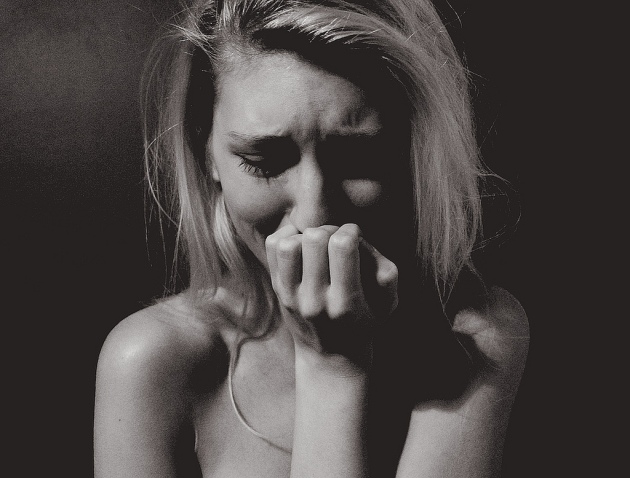Note: Like all my posts, what I write here does not constitute medical advice.
I love the Oscars.
I used to host an annual Oscar party that served up fancy hors d’oeuvres, ballots, and silly prizes. My much more subdued Oscar plan this past February was to watch the show at my sister’s apartment. Sunday morning, I woke up feeling as good as I ever feel. I made the bed, took my morning medication, and I even made it to a 9:30 a.m. yoga class. That afternoon, I saw my closest friend and visited with her baby.
Later, back at home, while I was reading the paper, emotions unrelated to anything I was doing or thought I was feeling–sadness, jealousy, anger, and desperation–overwhelmed me. In what felt like an instant, I couldn’t imagine getting up from my sofa. I couldn’t even imagine caring about the Oscars.
“I’m not feeling well,” I texted my sister. “I think I have a cold.”
“Oh no!” she responded. “Take Vitamin C and feel better!”
And then I went to bed, around nine o’clock, without watching any of the awards show I’ve loved so much over the years.
On Monday, I woke up with that heavy weight of depression still on top of me. I couldn’t get out of bed. I called in sick to work. (I am grateful to have a job where it’s OK to call in sick.) Of course, I didn’t tell anyone what was really wrong. How can you properly explain: “So sorry, but I just feel a sense of existential dread so deeply rooted in me that I can’t move.”
I spent my morning in and out of sleep. By noon, I did manage to shower and to get out of bed. I realized that my sadness is almost definitely induced by PMS. But this knowledge didn’t make it much easier.
Right now, I write this because I am still feeling very down. I’m not clinically depressed. I have what I’d label PMS-induced-depression, which colors my whole world grey. I did manage to get through my day, and I wanted to offer some of my coping mechanisms.
Accept that Your Best is Ever-Changing.
I learned this from one of my favorite books, The Four Agreements. The fourth agreement is to ‘always do your best,’ but Ruiz notes that our ‘best’ changes from moment to moment. Yesterday, the best I could do was to get out of bed. And I accepted that this was OK. Getting out of bed can be an achievement on some days.
Try to Gain Perspective
It’s not so easy to attain when you’re feeling depressed. But it is possible to zoom out and at least think about the suffering you’re not enduring. My mind wanders to images of war-torn countries, to parents who have lost children, to homeless people out in the cold. I don’t do this as a means of schadenfreude, as I’m not gaining pleasure thinking of those less fortunate than I am. Instead, I’m opening myself up to a world of suffering far greater than my own. These reminders really do help me step outside my own pain.
Be Kind to Yourself
I took a bath with green tea bath salts yesterday. I rested. I let myself cry. There’s a time when all of this would have made me feel guilty–made me felt like I was inferior to other people in the world who get up and go to work every day. But I have to remind myself that I DO get up and go to work almost every day. My body and mind sometimes needs a ‘Time Out,’ so that’s what I gave it. At work today, I still felt troubled, but I made it through.
The good news is that I believe the PMS will be lifting soon. The good news is that I’m feeling well enough to write this blog post. For all of you who are suffering from PMS-induced-depression or just plain old depression, I know that this advice is not going to fix things, but I hope it helps to know someone else is out there, feeling the way you do, telling you that it’s going to be OK.
